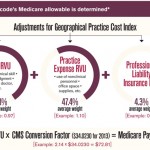For the fourth time in the past 15 years, a rheumatologist will hold a two-year voting seat on the American Medical Association’s Relative Value Update Committee (RUC), which advises the Centers for Medicare & Medicaid Services (CMS) about setting its Medicare reimbursement rates for physician services—rates that also heavily influence private payer reimbursement rates.

Dr. Barré
The new member of the RUC is Luke Barré, MD, MPH, RhMSUS, a rheumatologist with Hawthorn Medical Associates in Dartmouth, Mass., and assistant professor of clinical medicine at Boston University School of Medicine.
“The RUC provides a structured, data-driven way of ensuring that our physician work is appropriately valued, which ultimately impacts reimbursement and equitable patient care,” Dr. Barré says. “That’s important to medicine overall, and it’s important to our specialty, our patients and the sustainability of our field.”
Representing Rheumatology
In all, the RUC comprises fewer than three dozen seats, which are assigned to different medical fields. Internal medicine holds a seat that can be filled by a representative of several specialty societies, including the ACR, according to Antanya Chung, ACR’s director of practice management, who helps ensure that rheumatology is represented on the RUC.
“This seat is the only seat the ACR can ever hold on the RUC panel, and we are excited for Dr. Barré to be elected to this important position,” Ms. Chung says. “He is a very intelligent and caring professional who is humble and considerate. We appreciate the significant amount of time and dedication that he gives to this process, rheumatology and to medicine, especially with a young family.”
As a RUC member, Dr. Barré will evaluate and vote on payment codes that are outside his area of expertise, a RUC protocol designed to eliminate bias in its recommendations to the CMS. However, many of these codes can be relevant to rheumatology services as well.
His alternate is rheumatologist Tim Laing, MD, MACR, associate professor emeritus at the University of Michigan Medical Center, who has served three previous two-year terms as a RUC member. A third rheumatologist, Eileen M. Moynihan, MD, FACP, FACRH, of Noridian Healthcare Solutions, has served in RUC capacities in the past and will hold a post as the ACR’s RUC advisor. As a non-voting advisor, Dr. Moynihan will directly advocate on behalf of rheumatology by presenting to the RUC both the results of ACR member surveys (see sidebar) and ACR recommendations about physician valuation.

